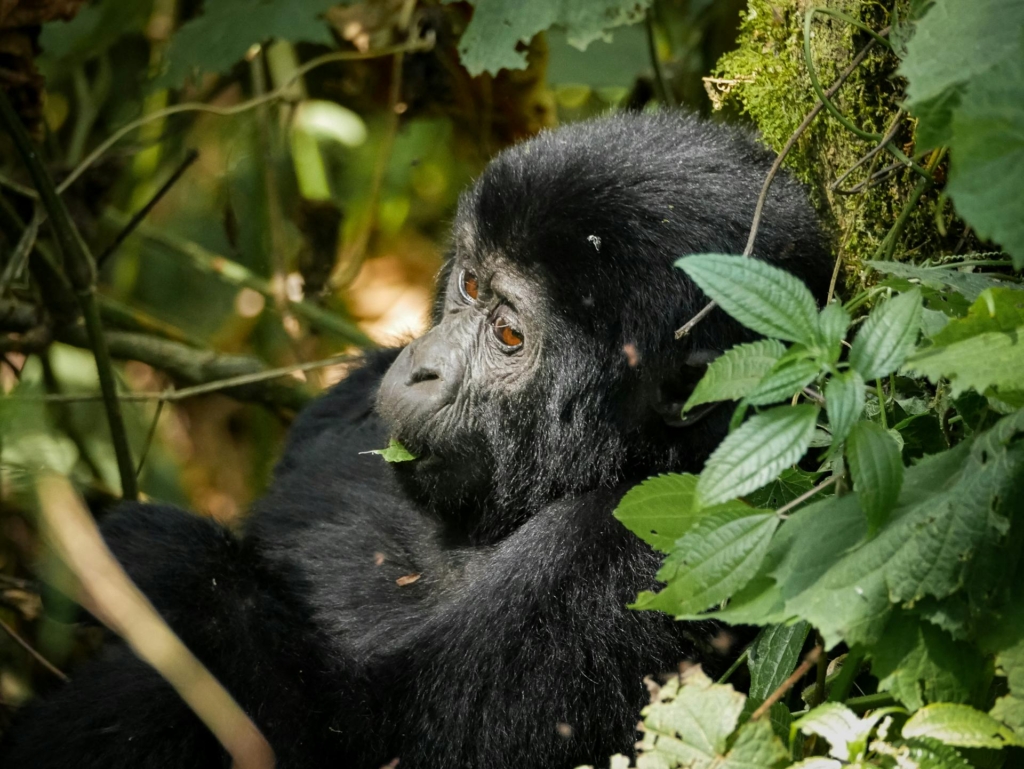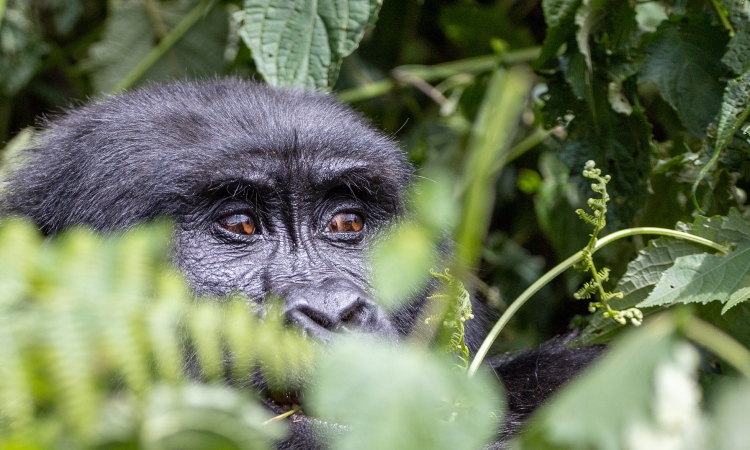Roles of Gorillas in the Ecosystem – An ecosystem (or ecological system) is a system that environments and their organisms form through their interaction.
The biotic and abiotic components are linked together through nutrient cycles and energy flows.

Therefore, being a significant element of the environment, gorillas play a vital role in the ecosystem, and their impact is felt throughout the forest in the following ways:
- Seed Dispersal and Soil Aeration: Both species of gorillas, the western and eastern, play an essential role in maintaining biodiversity in their forest homes through seed dispersal. They create small clearings in the foliage as they forage, allowing a wider array of plant species to find sunlight and thrive.
- Gorilla Species Conservation: Gorillas are under threat from habitat destruction, poaching, and disease. For more than 50 years, there has been a global need for species conservation. WWF has worked to protect these powerful primates—with whom we share 98% of our DNA—by strengthening protected areas and rallying local and international support for gorilla conservation, which enhances biodiversity in animal species.
- Protection of Other Animal and Plant Species: Protecting gorillas and their habitat also safeguards myriad other species in the ecosystem, providing people and communities with food, water, medicine, and other forest products. Defending gorillas in the Congo rainforest, the second largest in the world, is important not only to protect biodiversity but also to stabilize climate and rainfall patterns that have impacts as far away as the US.
- Forest Regeneration: Gorillas contribute to forest regeneration through their droppings, which maintain soil fertility and act as agents of seed dispersion. They also create pathways and clearings, facilitating the growth of new vegetation and maintaining the diversity of plant species.
- Nutrient Cycling: Gorillas help recycle nutrients through their waste, supporting the growth of other organisms in the ecosystem. Their vegetarian diet aids the development of other plant species and the growth of other animals.
- Predator Control: Adult gorillas can deter predators like leopards and crocodiles, protecting other animals in the forest. Their vegetarian diet plays a role in ecosystem protection.
- Ecological Niche: Gorillas occupy a unique ecological niche, playing a distinct role in shaping their environment and maintaining ecosystem balance. Due to their endangered status and high protection, their habitats are conserved by different stakeholders, thus conserving the environment.
- Source of Food: Gorillas act as a source of food for predators like leopards, crocodiles, and eagles.
- Habitat Maintenance: Gorillas maintain their territories, helping preserve the structure and diversity of the forest ecosystem.
- Indicator Species: The presence or absence of gorillas can indicate the overall health and biodiversity of their ecosystem, making them an important indicator species. Their waste products can also indicate infection or health, making it easier to track and treat them.
By and large, gorillas contribute significantly to the resilience and diversity of their ecosystem, underscoring the importance of conservation efforts to protect these magnificent creatures and their habitats.










